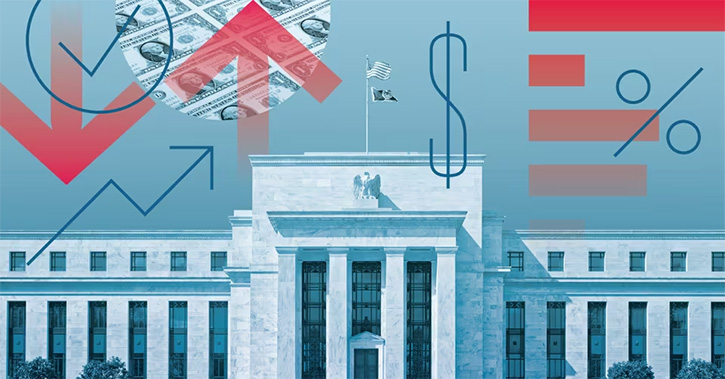Disclaimer: Mike Moffatt has served as an outside advisor to the Liberal Party of Canada. Dr. Moffatt regularly works with Canadian politicians across the political spectrum and spoke in his capacity as an economist in his conversation with Morningstar.
How do Canadian and global investors feel about the possible election outcomes?
Mike Moffatt: I think there is a little bit of uncertainty whenever you have an election that’s as close as this one, and parties with different policies, that naturally creates a little bit of tension. I think investors are particularly worried about increasing corporate tax rates, particularly if the NDP come in to power. So there is some uncertainty there. I think if closer to the election day, it becomes clear what the outcome is going to be, I think some of that uncertainty will go away, but I think right now international investors are feeling a little bit worried.
How big a priority should economic productivity be for the parties and investors?
Right now, because we don’t have high commodity prices to kind of narrow us out of this and paper over some of our sins, these productivity issues are affecting a lot of our companies and a lot of equity markets. The various parties have had different proposals to increase productivity, whether it'd be increases in infrastructure to help us get goods to market faster or skills training and apprentice training. So it is one of those issues that I think all of the parties are concerned with. They are just going about these solutions in different ways.
How should the next government grapple with low commodity prices?
Because the TSX is so heavily weighted to commodities, it is depressing out a little bit. But we do have a lot of other companies in Canada, some of which are doing better than others. So we have the financial sector, we have pharmaceuticals. I think a lot of what's going to happen to the Canadian economy over the next four years is going to be in part due to commodity prices, but in part due to the strength of the U.S. economy, that the U.S. economy is booming, that’s going to help our manufacturers in southwestern Ontario. That’s going to help our pharmaceutical companies. So overall those are the things to watch, first of all, on the commodity side, but secondly the strength of the U.S. economy.
What can the next government do about the slumping loonie?
There is not a lot the government can do in the short run. That loonie is highly tied to commodity prices, so it tends to move in the same direction as oil prices and a few other commodities. One thing that the next government, whoever they are, will have to deal with is they get to set the next mandate for the Bank of Canada that comes up in 2016. They could if they so choose move away from inflation targeting and into some other form of targeting, either raising the inflation rate or having a dual mandate like the United States, where you tie inflation and the unemployment rate. If they did that, they might have a little bit more power over the currency. I don’t expect any governments to change the bank's mandate, but that is coming up for renewal so that is an option the next Prime Minister will have.
Are there any policies you would like to see from the next government?
I think there is a little bit more that we could be doing to encourage savings, and a lot of the issues that we're having is not so much that people are running out of RRSP room, our people are running out of TFSA room, but rather they just don’t have the money to save to cap those things out of the first place. So policies like the RESP, where the government kicks in an additional amount to get people to save money for the children's education, I think we might be able to increase that, and as well change some of the policies around that make it easier for young parents to opt into that system. I think would go a long way.
What would be the impact of proposed changes to the taxation of stock options?
Well, I think whichever the Liberals or NDP come into power, I think they are going to need to structure that in a way that it’s more designed for executive compensation. So they are not looking so much for the average investor to sort of limit gains there. What they are trying to do is prevent companies from issuing these options as a form of compensation, and then have them get rolled over automatically. So they are essentially a form of labour income that’s kind of being masqueraded a little bit as investment income. So if you are investing in options as an average investor, I don’t think you need to worry too much about that. That doesn’t seem to be where those two parties are targeting.
What would be the impact of proposed changes to RRSPs and TFSAs?
Both of the major opposition parties have promised to scale back the TFSA limits, largely because those increased limits do cost the government a few hundred million dollars a year going forward. So people who are topping out their TFSAs might be a little bit worried about that. Other than that there hasn’t been too much daylight between the parties; RRSP contribution limits don’t look to be changing regardless of who the next government is. So that seems to be the one thing I think the average investor may be a little bit concerned with, that cap on TFSA contributions.




















